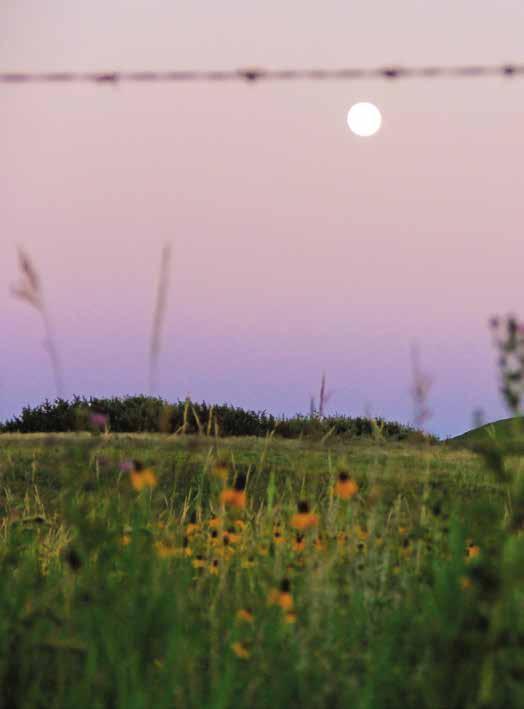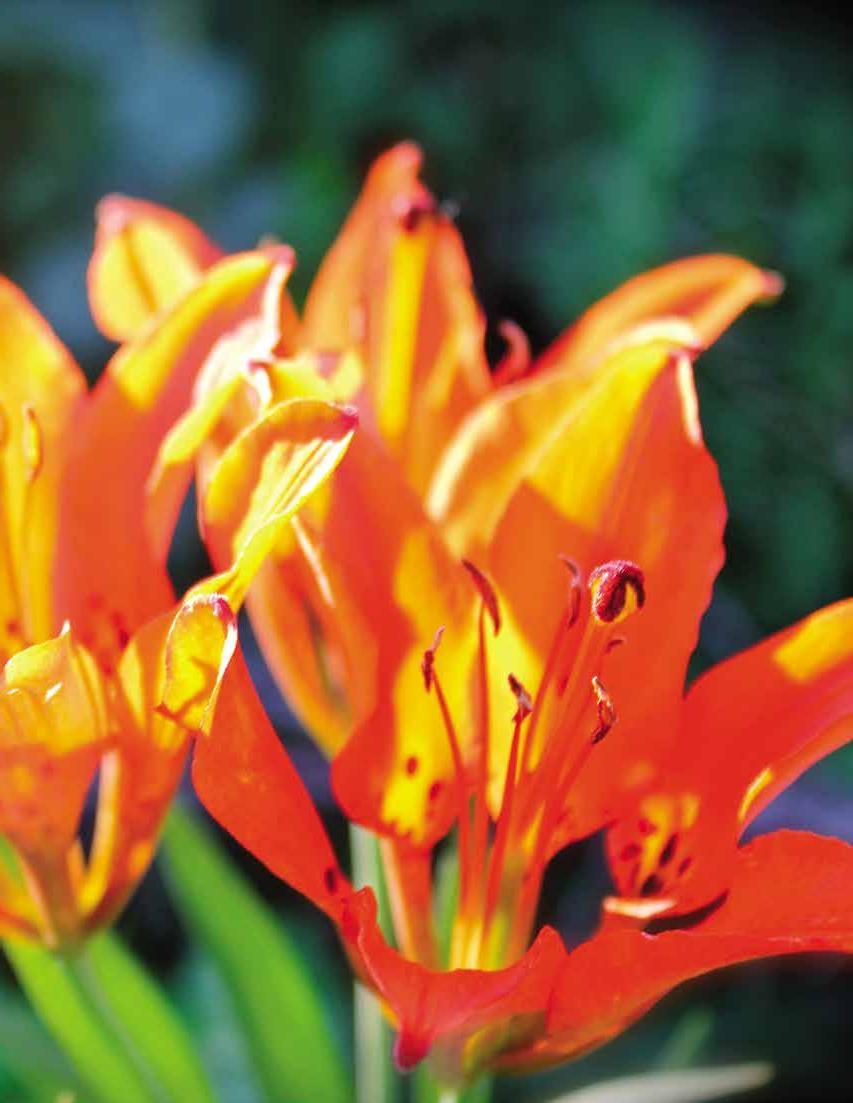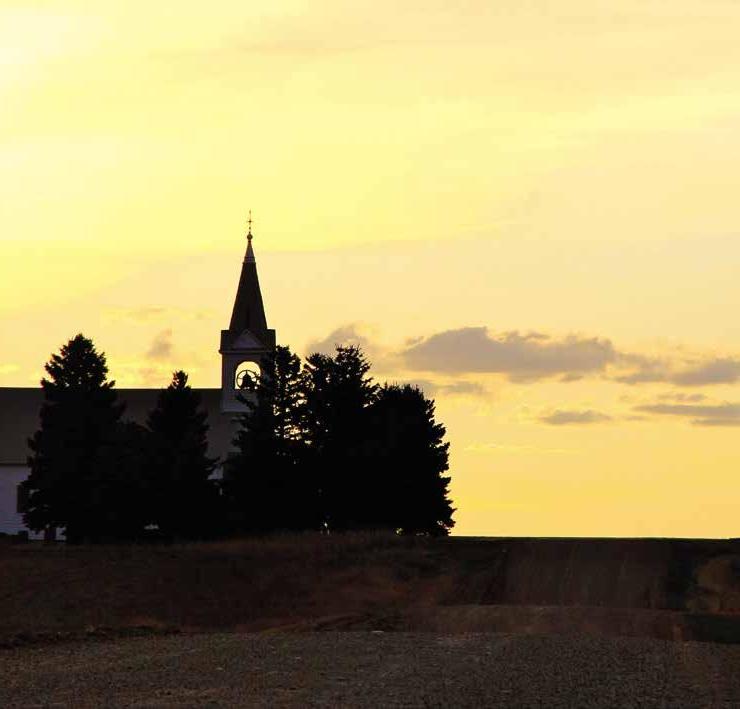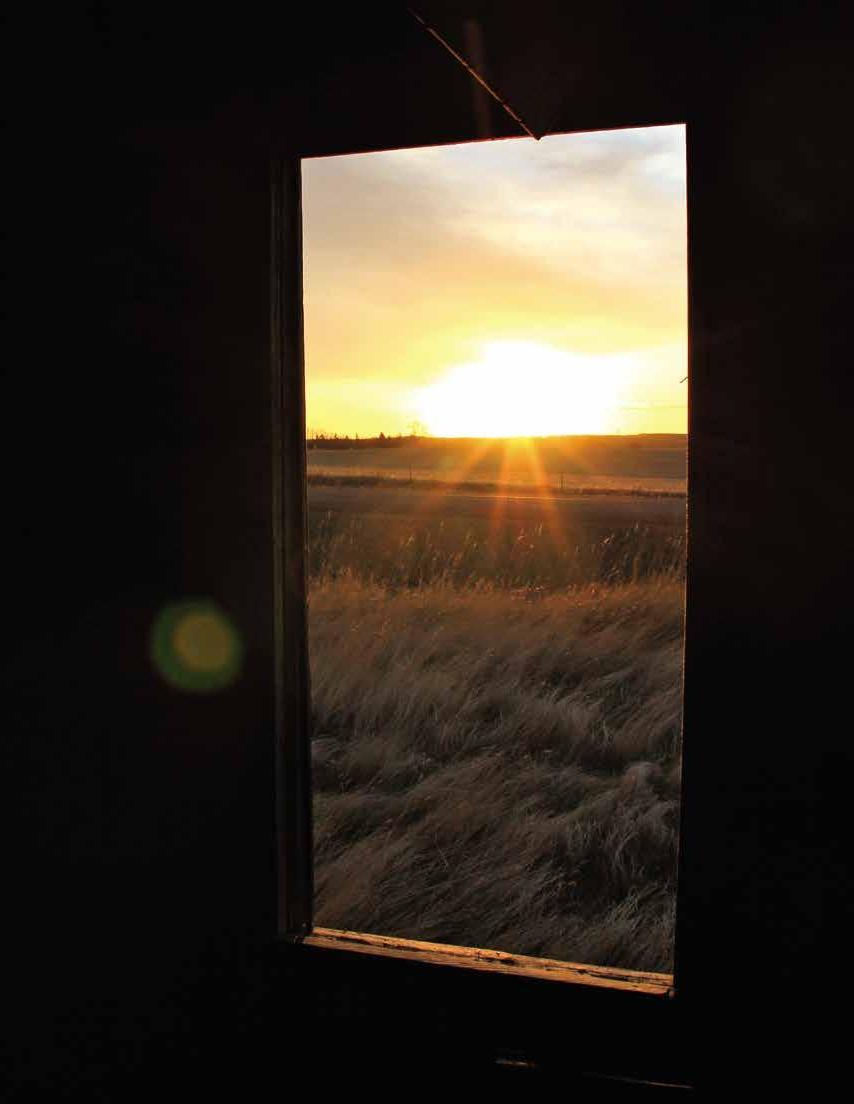
5 minute read
Fritos and Beans
By Melanie Smith
I slip on my green-striped rain boots and button up my insulated, newly purchased and appreciated wind-breaker as I feel the strikingCanadian wind blowing the northwest side of the camper, rocking it like a weathered dinghy in a storm-raged sea of white-topped waves.
Advertisement
I grab my keys, slip out the aluminum door, barely saving it from the grabbing arms of the wind, and tread through the 10 feet of sloppy mud that lies between my rickety wooden stairs and the driver side door of my Pontiac. My two children are snuggled up on the pullout couch watching an old DVD of Ice Age on my laptop.
“Jimmy, watch after your little sister; I’ll be right back!”
That’s not true. I won’t be right back. All I need to do is run to the store for a can of beans and some Fritos to complete our supper of chili. In a normal town, on a normal afternoon, I would be right back. But our town is not normal.
Normal is a fascinating state of being which I no longer try to emulate. A sluggish economy contributed to my husband’s loss of a supposedly secure job, leaving us with a dwindling savings and a hefty mortgage. Like all the other pioneers making the adventurous trek to the overpopulated small towns of western North Dakota with infrastructures the size of a stalk of wheat, we found ourselves living in a man camp lined with dozens of campers and propane tanks.
In the first two months of our “oil boom” living, I tried to convince myself a life of “new normal.” In my mind, I tried to replace my 1800 square foot home, centrally heated and air conditioned, with my 250 square foot camper equipped with the latest and greatest space heater Walmart could provide. I put a plant on the tiny ledge above my mini-sink to replace the flourishing garden I left behind. The homemade quilt spread on the double bed squeezed into the back of the camper was meant to satisfy a longing for my former spacious, rustic décor. My new normal boasted of tiny co-existence in a sardine can tossing on a vast sea of grain.
It takes me a minute or two to manipulate my two-wheel drive out of the mud pit. It’s an art. Turn the wheel from side to side and press on the gas in spurts. The mud eventually produces a smidge of traction and my small, economical, urban-loving car is free. Looking ahead to the highway, I notice a break in the steady stream of trucks that constantly lines the road. Here’s my chance! I press the accelerator, lurching through three cavernous potholes, bolting onto the highway and fishtailing into my northbound lane, right between an oil truck and a “wide load” mobile home.
Trucks. I have a new appreciation for the five o’clock rush in my old town. Drivers pass the time there in predictable four lanes with Starbucks and iPhones. Here? Venturing out onto the highway is ranked right up on the death-defying, risk-taking, life-threatening events like rattlesnake taming and base-jumping.
The typical twenty-something oil-field worker is your biggest threat. At any moment, he can jump into your lane to pass a truck hauling nine tons of pipe that is going just a bit too slow for him. He is much more important…and arrogant…and inexperienced than just about everyone on the road. He doesn’t even flinch when he sees you heading straight for him. He knows you will slow down, and he will zip right back over to his lane and carry on with his life.
Meanwhile, you spend the next hour re-evaluating your life and decisions, rejoicing in the chance to live another day. You are lucky, because Mr. Twenty-something-oil-guy doesn’t always judge his speed and your willingness to acquiesce correctly. More fatal crashes occur in this major oil-producing county than any other county in the state. Today, I’m risking my life for beans and Fritos.
After two miles and fifteen minutes of traffic, I arrive at the store. The floors are brown with mud and dirt and I fit right in with my muddy boots. I’m embarrassed by the stares. Here, I know the stares are solely based on the fact that I am a woman, a rare sight in this neck of the woods. I don’t make eye contact. I tell myself that these are surely respectable men just like my husband, just trying to grasp that opportunity the oil provides.
But I just want some beans and chips. I want to make it home alive. My family is hungry and I want to feed them. I’m contemplating camp stove cooking on my two tiny burners and three inches of counter space. I don’t want to think about these random love-starved mud-caked oil men. I keep my head down and my feet focused.
Checking out, head still down, I’m fumbling in my purse for my debit card when I hear a sweet voice. “Hello, how are you today?”
I look up into green, slightly mascara-smudged eyes. Her cheeks are chapped, her hair a bit wind-blown and pulled back into a scrunchy. She wants to know if I found everything I needed. I wonder if she has little ones cuddling at home on her camper couch. Does she have to slop through mud too? What did she leave behind at her old home?
I look knowingly into her weary face and imagine seeing a speck of homesickness. I think of my two camper cuddlers watching Manny and Sid’s arctic journey and my own oil-field guy who at that moment is hopefully resisting the urge to pass the pipe hauler in front of him.
Within an hour, we’ll all gather together in our tight space with spicy aromas of chili spice and cumin welcoming daddy home from the field. We’ll share our daily struggles and accomplishments. I’ll pass out the bowls, spoons and bag of Fritos and we’ll warm our bones with beans, letting the savory Texmex flavors momentarily satisfy our taste for home. We’ll be together; we’ll be warm and by God’s grace, we’ll be safe.
What more could I ask for? I smile back at those green smudgy eyes and thoughtfully reply, “Yes…yes, I have all I need.”
Melanie Smith and her family have been recently transplanted from a life in the military to the booming oil fields of North Dakota. In addition to educating her own children at home, she also teaches 19th and 20th Century Literature online to other homeschooled students all across the nation. Fritos and Beans is Melanie’s first attempt to “sit at the typewriter and bleed," as Hemingway so famously articulated.










